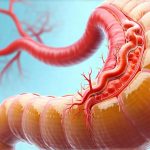Digestive Enzyme Deficiency: Understanding the Signs and Symptoms
Our bodies are remarkable machines, meticulously designed to break down food into usable nutrients. This process isn’t simply about chewing; it relies heavily on digestive enzymes – specialized proteins that catalyze the breakdown of carbohydrates, fats, and proteins. When enzyme production is insufficient, or when our bodies struggle to utilize them effectively, a cascade of digestive issues can arise, impacting not just gut health but overall wellbeing. Recognizing the subtle (and sometimes not-so-subtle) signals your body sends indicating potential digestive enzyme deficiency is the first step toward addressing it and restoring optimal digestion. This isn’t about self-diagnosing; rather, it’s about becoming attuned to your body and understanding when seeking professional guidance might be necessary.
The complexity of digestion often means symptoms can overlap with other conditions, making accurate identification challenging. Many people attribute digestive discomfort to common issues like stress or dietary choices without considering an underlying enzymatic issue. Furthermore, enzyme deficiencies can develop gradually over time, leading to a slow creep of increasingly bothersome symptoms that become ‘normal’ – something we simply learn to live with. This article aims to illuminate the potential indicators of digestive enzyme deficiency, empowering you to recognize when your digestive system might need extra support and encouraging informed conversations with healthcare professionals about appropriate testing and solutions. It is important to remember this information is for general knowledge and does not constitute medical advice.
Common Symptoms Suggesting Enzyme Deficiency
A wide range of symptoms can suggest a potential digestive enzyme deficiency, often varying in severity depending on the specific enzymes lacking and the individual’s overall health. These aren’t always dramatic or debilitating; many present as persistent, low-level discomfort that impacts daily life. One of the most common indicators is bloating – not just after large meals but even with relatively small portions. This occurs because undigested food ferments in the gut, producing gas and causing distension. Similarly, excessive gas is a frequent complaint, often accompanied by abdominal cramping and discomfort. The type of gas produced can also offer clues; for example, sulfurous gas may indicate issues digesting protein.
Beyond bloating and gas, changes in stool consistency are telling. Diarrhea, constipation, or alternating between the two can all signal an enzymatic imbalance. Undigested food particles passing through the intestinal tract irritate the gut lining leading to these inconsistencies. Another key symptom is feeling uncomfortably full quickly when eating – even before you’ve consumed a typical portion size. This indicates your body isn’t efficiently processing what it’s receiving, leaving you feeling sluggish and dissatisfied. Finally, visible undigested food in stool can be a very strong indicator that the digestive process is failing to properly break down certain foods.
Many individuals experiencing enzyme deficiencies also report food sensitivities or intolerances developing seemingly out of nowhere. This isn’t necessarily an allergy but rather the body reacting negatively to foods it previously tolerated because of incomplete digestion. Lactose intolerance is a classic example, often stemming from insufficient lactase production. However, sensitivities can extend beyond lactose to include gluten, fructose, and other common dietary components. Identifying these patterns through careful observation and potentially food elimination diets (under professional guidance) can be invaluable in pinpointing the root cause of digestive discomfort.
Recognizing Specific Enzyme Deficiencies
Identifying which specific enzyme deficiency might be present is crucial for targeted support. While comprehensive testing exists, observing symptom patterns can offer initial clues. Lactase deficiency, as mentioned earlier, results in difficulty digesting lactose (milk sugar), leading to bloating, gas, diarrhea, and abdominal pain after consuming dairy products. Symptoms typically appear within 30 minutes to two hours of dairy consumption. Similarly, a lack of lipase – the enzyme responsible for fat digestion – manifests as greasy stools, nausea, stomach cramps, and difficulty absorbing fat-soluble vitamins (A, D, E, K). This can happen after consuming high-fat meals.
Amylase, crucial for carbohydrate digestion, deficiency can result in bloating, gas, and diarrhea after consuming starchy foods like bread, pasta, or potatoes. You might notice undigested starch particles in your stool. It’s also important to note that pancreatic insufficiency – a condition where the pancreas doesn’t produce enough digestive enzymes – can affect all three of these enzyme types (lactase, lipase, and amylase) simultaneously, leading to widespread digestive issues. This is often associated with chronic conditions like cystic fibrosis or pancreatitis but can also develop gradually over time due to aging or lifestyle factors.
Finally, protease deficiencies, affecting protein digestion, are harder to pinpoint based on symptoms alone. However, they can contribute to bloating, gas, and abdominal pain after consuming protein-rich foods. More subtly, insufficient protease activity can lead to an increased risk of undigested proteins triggering immune responses in the gut, potentially contributing to inflammation. A healthcare professional’s assessment is vital for accurately diagnosing these deficiencies and determining the appropriate course of action.
Lifestyle Factors & Enzyme Production
Several lifestyle factors can significantly impact digestive enzyme production and absorption. Chronic stress, for example, diverts energy away from digestive processes, hindering enzyme synthesis. Similarly, poor dietary habits – particularly those lacking in essential nutrients or heavily reliant on processed foods – can compromise gut health and enzymatic function. A diet deficient in zinc, for instance, can impair pancreatic enzyme production. Furthermore, certain medications (like proton pump inhibitors) can interfere with digestion by reducing stomach acid levels, which are necessary for activating some enzymes.
Aging also plays a role, as enzyme production naturally declines with age. This is why older adults often experience more digestive issues than younger individuals. Beyond diet and stress, conditions affecting the pancreas – such as pancreatitis or cystic fibrosis – directly impact enzyme production. It’s important to remember that gut health itself is intimately linked to enzymatic function. A healthy gut microbiome supports optimal digestion, while imbalances (dysbiosis) can further exacerbate deficiencies.
Addressing these lifestyle factors often forms a cornerstone of improving digestive function. This includes managing stress through techniques like meditation or yoga, adopting a nutrient-rich diet emphasizing whole foods, and minimizing processed food intake. Prioritizing sleep and staying adequately hydrated are also essential for maintaining optimal gut health and enzyme production. While lifestyle changes can be incredibly beneficial, they may not always be sufficient to address significant deficiencies – in which case professional evaluation and potential supplementation might be warranted.
Disclaimer: This article provides general information about digestive enzyme deficiency symptoms and is not intended as a substitute for professional medical advice, diagnosis, or treatment. Always consult with a qualified healthcare provider before making any decisions related to your health or treatment.


















